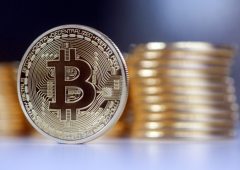Debate Over U.S. Gold Reserves Grows as Calls for Blockchain Tracking and Audits Intensify
24.03.2025 18:13 1 min. read
The idea of applying blockchain to gold reserves has gained attention, with proponents arguing it could improve oversight.
However, Greg Cipolaro of NYDIG emphasized that blockchains, unlike Bitcoin, require centralized verification, making them unsuitable for fully trustless tracking. Still, he suggested that such efforts could increase interest in digital assets and reinforce Bitcoin’s broader narrative.
Momentum for an independent audit of U.S. gold reserves has been growing, with Senator Rand Paul hinting that Elon Musk’s cost-cutting measures should include a review of Fort Knox’s holdings.
Despite regular Treasury audits, skepticism persists, partly due to long-standing conspiracy theories amplified by Trump and Musk. The last time outsiders inspected the vault was in 2017, and before that, in 1974. Officials insist that all gold is accounted for, though doubts remain.
Critics argue that without a fully transparent and independently verified audit, uncertainty will persist. While the U.S. Mint asserts that no significant movement of gold has occurred in years, calls for greater scrutiny highlight a broader mistrust in government institutions. Whether blockchain or traditional audits are the answer, the debate over America’s gold reserves continues.
-
1
Binance Pushes Back Against FTX Lawsuit, Calls Claims “Baseless”
21.05.2025 8:00 2 min. read -
2
New Ethereum Initiative Targets Institutional-Grade Security Standards
16.05.2025 14:00 1 min. read -
3
Ark Invest Buys Into eToro as Shares Surge on Nasdaq Debut
16.05.2025 8:00 1 min. read -
4
JPMorgan CEO Warns Market Is Overlooking Risks from Tariff Tensions
22.05.2025 8:00 1 min. read -
5
FIFA Teams Up with Avalanche to Launch Its Own Blockchain
23.05.2025 9:00 1 min. read
Yuga Labs Moves to Dismantle ApeCoin DAO in Favor of Centralized Structure
In a bold move to reshape the future of ApeCoin, Yuga Labs has introduced a proposal that would dissolve the existing ApeCoin DAO and replace it with a streamlined management body called ApeCo.
ARK Invest Makes Bold Bet on Circle as Stablecoin Giant Enters Wall Street
Circle’s arrival on the New York Stock Exchange sent shockwaves through the market, and Cathie Wood’s ARK Invest wasted no time jumping in.
WazirX Restructuring Plan Blocked by Singapore High Court
WazirX’s bid to restructure and compensate victims of a $230 million hack has been rejected by the Singapore High Court, putting the exchange’s recovery roadmap in limbo.
Tariffs Not a Threat to S&P Momentum, Says Fundstrat’s Tom Lee
Fundstrat’s Tom Lee believes that lingering caution in the stock market could actually be setting the stage for another bullish breakout.
-
1
Binance Pushes Back Against FTX Lawsuit, Calls Claims “Baseless”
21.05.2025 8:00 2 min. read -
2
New Ethereum Initiative Targets Institutional-Grade Security Standards
16.05.2025 14:00 1 min. read -
3
Ark Invest Buys Into eToro as Shares Surge on Nasdaq Debut
16.05.2025 8:00 1 min. read -
4
JPMorgan CEO Warns Market Is Overlooking Risks from Tariff Tensions
22.05.2025 8:00 1 min. read -
5
FIFA Teams Up with Avalanche to Launch Its Own Blockchain
23.05.2025 9:00 1 min. read


